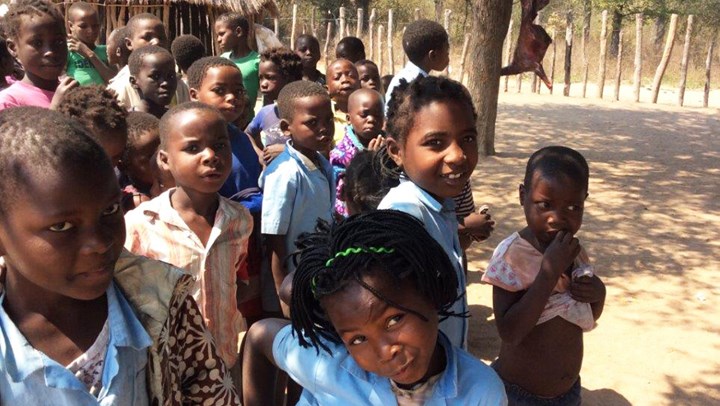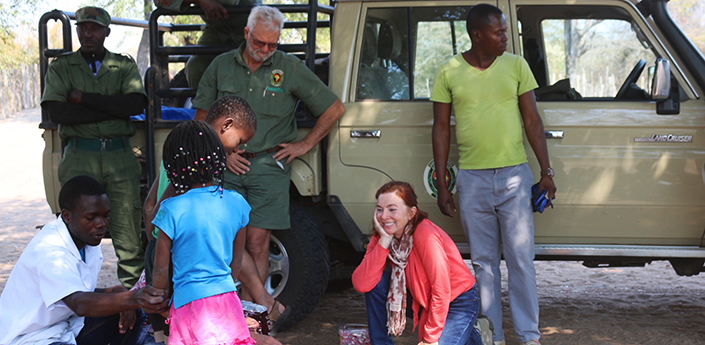
by John Zent, Editorial Director, NRA Publications - Monday, October 9, 2017

In Mozambique and other African safari nations, hunting operators are being counted on to help build and provide ongoing support for rural schools. This part of the business model is often among the negotiated terms in the long-term leases on the lands where they operate, as our group learned during a recent outing with outfitter Wayne Wagner and Mutemba Safaris. Wagner and his partners have backed a nearby school for years, allocating monies from what clients (Americans and other foreign guests) pay for their hunts.
The school—which consists of classroom buildings, housing for teachers, a principal’s office and a vegetable garden—teaches basic academic skills to scores of local kids ranging from primary school to high school. Instruction is principally in Portuguese, which, since colonial times, has been Mozambique’s official language for government and business. Learning to read and write Portuguese, along with math and other subjects, gives the students a big heads-up in an extremely poor nation where the adult literacy rate is just over 50 percent. However, that trend is upward—it was rated at 28 percent in 1980—in no small measure because of the involvement of hunting companies supporting schools in their local communities.
Escorted by Mutemba Safaris Conservation Manager Tony Marx and some of his anti-poaching rangers, several folks from our hunting party visited the school while classes were in session to bring gifts to the students, teachers and staff. Approximately 40-50 younger kids were present and it quickly became apparent they are not unlike youngsters their age from other countries. They were bright and engaging, greeted their guests with songs and clearly enjoyed mugging for the camera.

Among the presents distributed by the Americans were soccer balls, flip-flops, classroom supplies and candy. It soon became a festive occasion to say the least. Perhaps as important, Marx and the rangers had brought a freshly butchered impala ram—much-needed protein for students and teachers alike. The school regularly receives meat from Mutemba, and of course that includes animals killed by paying clients like us.
Being able to see our roles play out firsthand made our group even more appreciative of the deeper role now being served by Mutemba and other outfitters. The schools they back are giving young Mozambicans a chance to break the cycle of illiteracy and poverty that has dogged earlier generations. In addition, hunting companies provide jobs, build roads, dig wells and create other lasting infrastructure. Although folks like us come for the thrill of the hunt and because of our love for nature and the outdoors, it is a blessing to be part of a system that is doing good. It helps one understand why African safaris cost what they do, but also to properly value the bigger picture.
E-mail your comments/questions about this site to:
[email protected]
